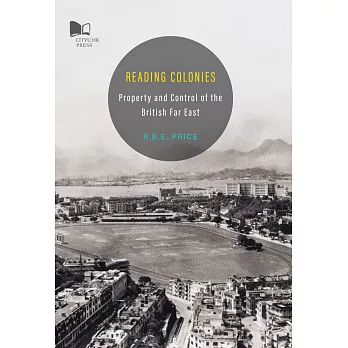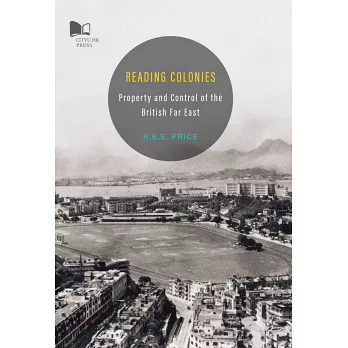Foreword
Rohan Price's Reading Colonies-Property and Control of the British Far East is a rich journey through the labyrinthine worlds of the nineteenth and early twentieth-century British Far East, of Chinese exceptionalism, decolonization, the politics of race, and the Eurocentricity of Marxist thinking. These intellectual worlds are not my especial areas of expertise, yet I embarked on this adventure with confidence and enthusiasm, guided by Price's engaging prose, and a unifying theme that I did have some knowledge of the: the Anglo common law of property, and its adaptations to the intricacies and nuances of Britain's Far Eastern colonies and concessions.
What is beguiling yet so satisfying about Reading Colonies is its invocation of a disappeared time and place. This book presents a rare opportunity to immerse oneself in faraway legal geographies, to spatio-temporal contexts where time is distant, yet space is somehow comfortably proximate. Like Sarah Keenan's explanation of the diaspora in Subversive Property (Routledge, 2015), the removed place one inhabits in reading this book is a marvellously erudite and colourful locale, detached in its history, yet accessible in its geography. In its linear way, the common law of property law is the tool that takes the reader from then to now. Price’s deep and historical understanding of property, the politics of property, and its place in what was the British Far East, keeps this diverse and complex construct together. It informs the contours of a narrative that is important for scholars to tell.
Central to this book is the argument that "law, in the form of property policy, kept colonial administrations... in charge by alternately deflecting bourgeois and subaltern nationalism at points when their claims seemed to presage decolonization". In particular, Price identifies and evidentially cites the British use of rent control as pivotal, a tenurial device he terms a "dialectical inhibitor". By freezing rent and guaranteeing low-cost, long-term tenures, "colonial administrations of the East offered an interpellating invitation to citizens to constitutes themselves as statutory tenants in order to stave off the appeal of communist political positions and prod bourgeois nationalist exponents into muted positions on the timing of decolonization". With enormous attention to historic, theoretical, and political detail, Price portrays property as a bulwark of colonial control, a pragmatic institution that was exploited skillfully. It is this feature: the setting of common law property in its colonial milieu, a captivating and exotic blend of time and place, that makes this book (from my myopic propertied lens at least) such a compelling and important contribution to the literature.
In closing, I note that Rohan and I are colleagues at the School of Law and Justice at Southern Cross University. We share the everyday landscape of faculty. Away from that everyday, my foray into Reading Colonies-Property and Control of the British Far East provided a glimpse into another scholarly landscape, one we share through common membership. This book presents a comprehensive, at times nostalgic, yet above all insightful perspective, a window into the British Far East. I am delighted to pen these introductory remarks to my colleague’s fine work, and trust that you will enjoy the journey ahead.
John Page
Associate Professor
School of Law and Justice
Southern Cross University
12 December 2016



 天天爆殺
天天爆殺  今日66折
今日66折 
























 博客來
博客來 博客來
博客來 博客來
博客來 博客來
博客來 博客來
博客來